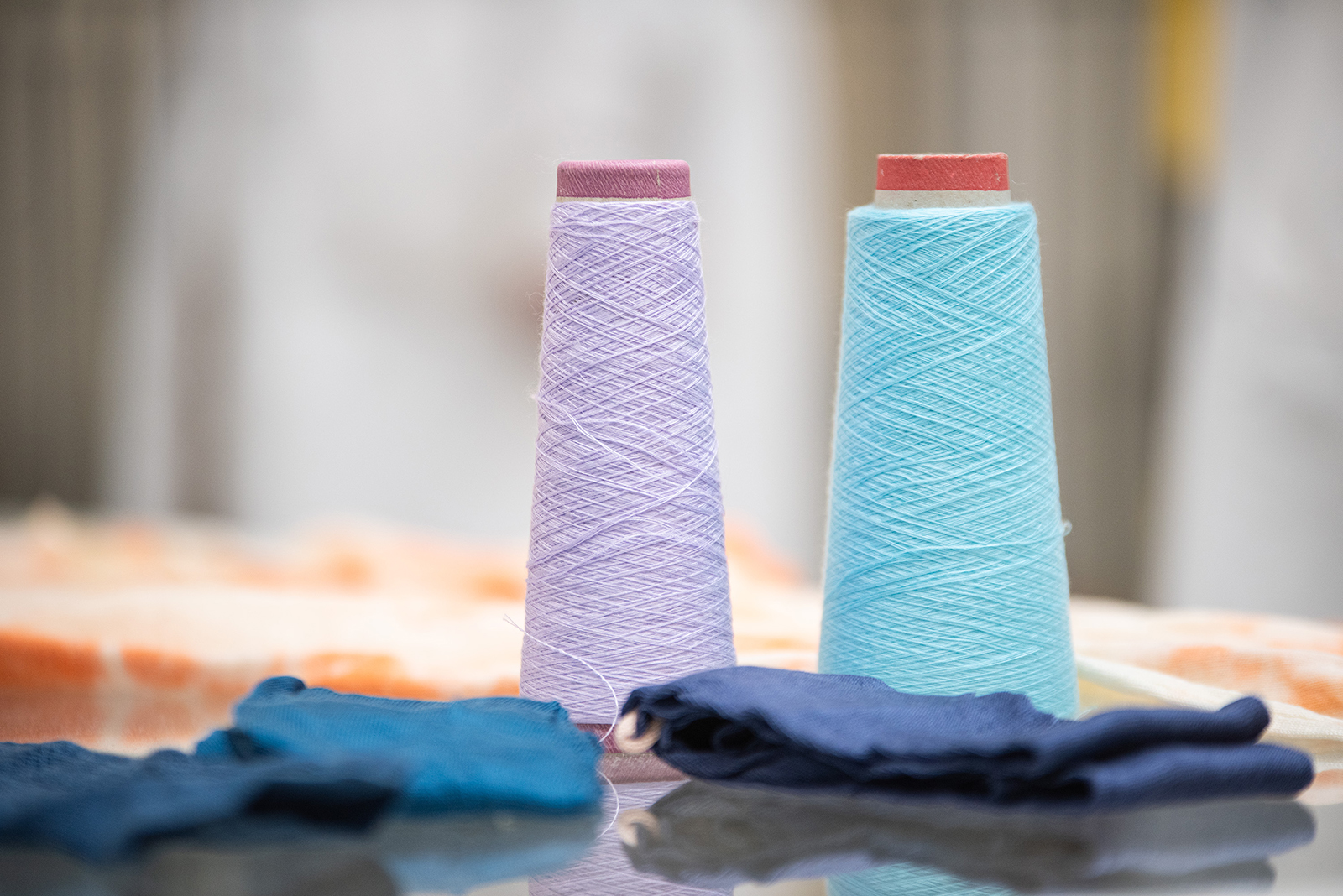April 18, 2024
(press release)
–
In the future, more and more garments will be made of wood and forest industry sidestreams. ’Sustainable textile industry of the future will be mainly based on cotton and cellulose fibres that are rapidly increasing their share,’ said Michael Carus, founder of the Renewable Carbon Initiative in Germany, speaking at the Pulp & Beyond conference in Helsinki. Cellulose fibres can be made from wood, sidestreams of forest industry and agriculture (such as wood chips or straw) and recycled paper. ’Later on, textile industry will be strongly supported by bio- and CO2-based synthetic fibres and the efficient recycling of all kinds of fibres.’ According to Carus, this combination can replace most of the fossil-based synthetic fibres. Increasing concern over environment The figures from current textile industry make chilling reading. At the Pulp & Beyond conference, they were reviewed by Aspi N. Patel, CEO of ABG & Biria Cellulose. Every second, one truckload of garments is being burned or discarded in the world. The fashion industry is responsible for 8–10 percent of the global carbon dioxide emissions. This is more than the emissions from international flight traffic and marine freight traffic combined. If the fashion industry continues in this way, its carbon emissions Wil shoot to one quarter (26 percent) of all emissions by the year 2050. ’There is increasing concern over the carbon footprint of the textile industry,’ says Patel. Over half (about 60 percent) of the materials used in the branch are plastic. Patel is of the opinion that this must change. ’If the fashion industry continues in this way, its carbon emissions Wil shoot to one quarter (26 percent) of all emissions by the year 2050,’ Patel pointed out. Garments from forest and agriculture Cellulose-based materials that are more eco-friendly than current materials are being intensively developed. Among pioneering enterprises are the Finnish companies Spinnova, Ioncell and Kuura. Spinnova promises that in its production, the carbon dioxide emissions will drop by about three quarters (74 percent) and the use of water almost completely (98 percent) compared to traditional textile industry. Kuura reports that it is manufacturing a new type of textile fibre without using fossil fuels. Speaking at the conference, the representative of the Swedish TreeToTextile company promised that each tonne of the fibre they manufacture will reduce atmospheric carbon dioxide by two tonnes (CO2eq). Cellulose fibres are the only bio-based and biodegradable fibres whose production can be rapidly expanded. Their share must be increased to solve the sustainability challenges faced by the textile industry. According to Michael Carus, the share of cellulose-based textiles of the market in 2022 was six percent. Growth figures of eight percent can be expected within this decade. ’Cellulose fibres are the only bio-based and biodegradable fibres whose production can be rapidly expanded. Their share must be increased to solve the sustainability challenges faced by the textile industry,’ Carus said.
* All content is copyrighted by Industry Intelligence, or the original respective author or source. You may not recirculate, redistrubte or publish the analysis and presentation included in the service without Industry Intelligence's prior written consent. Please review our terms of use.




